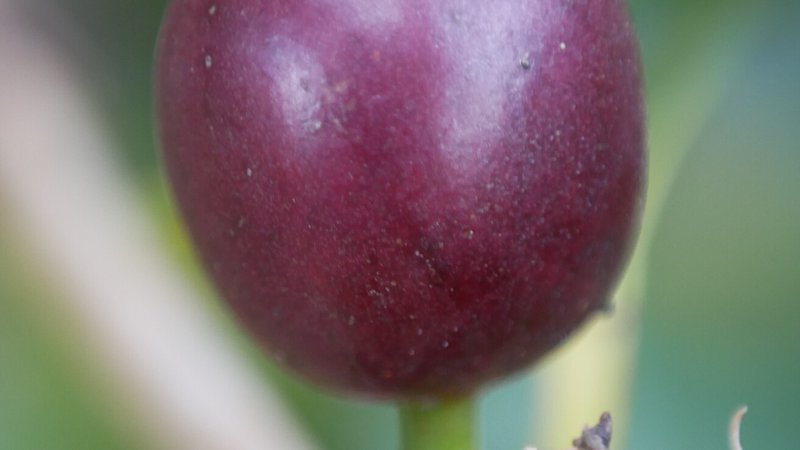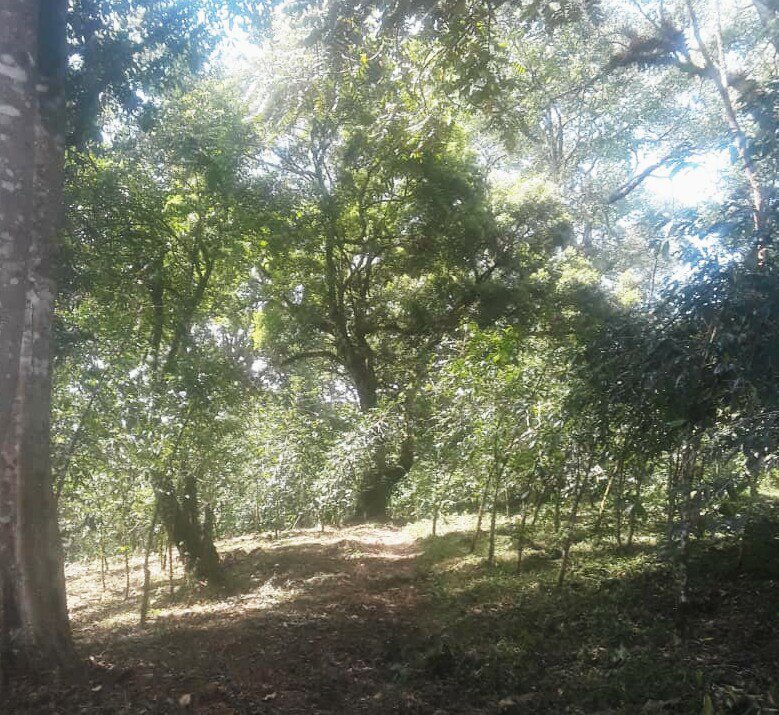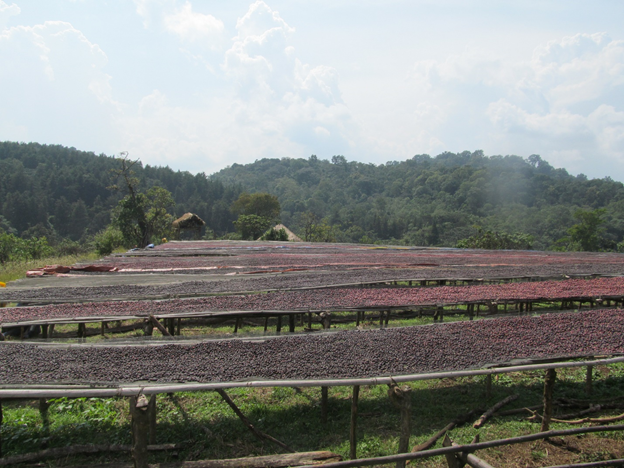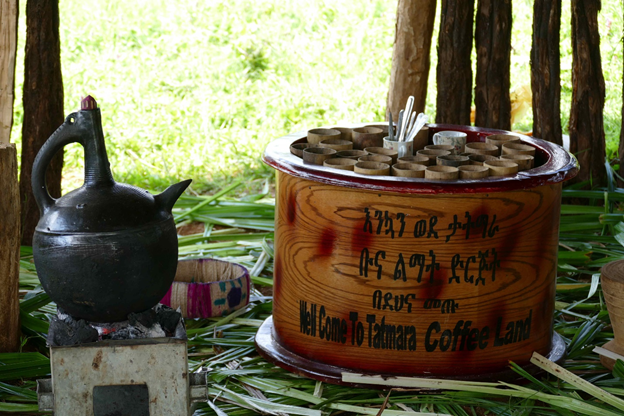Tatmara Coffee Farm

On our way back to Heleanna's farm, we have the chance to meet Mr. Negussie Tadesse, a coffee producer from Bonga, in the heart of the coffee region of Kaffa. His story with coffee started 10 years ago when he decided to leave the city to start a coffee farm in a virgin forest.

Although it was not possible for us in the short time we had left to visit his farm, we wanted to hear his vision as an independent farmer, of the current state of the coffee industry in Ethiopia.
Negussie produces and prepares his coffee according to the so-called natural process: coffee cherries are put on long wooden tables called African beds. The fermentation and drying process takes place naturally under the sun without previous pulping and washing.
This method is traditionally used in Ethiopia because it requires almost no use of water. When the preparation is well controlled, the sugars naturally present in the pulp will impregnate the beans and give in cup a coffee with very sweet notes of forest fruits, even winy sometimes, and of milk chocolate with a dense and unctuous body.
In addition to this traditional preparation, Negussie has recently started experimenting the so-called honey process. Under this method, the beans are pulped but then fermented and dried without using water to remove the entire mucilage.
"if you come to my farm you won't only see coffee"

His farm is located at an altitude of 1,930-2,100 above the sea level. His coffee grows under the shade of the forest, with both wild and selected planted varieties coming from Jimma research center.
It is fully organic and as he explains us: "if you come to my farm you won't only see coffee." Coffee is surrounded by many types of animals, shadow trees and other crops generating a complementary ecosystem.
" We have a potential to produce more qualitative organic coffee. But we need good prices. There's many challenges from nursery to export."
Being an independent and medium scale farmer, Negussie still has to face "many challenges from nursery to export." The biggest one is the financial capacity. All the other challenges - technologies, infrastructure, equipment - could be fixed if only farmers were not struggling.
The productivity of qualitative coffee is also at stake. He affirms that [Farmers] "have a potential to produce more qualitative organic coffee. But [they] need good prices"
Negussie is optimist though and trust the recent changes in the coffee marketing rules (cf.Coffee in Ethiopia).
"The recent opening is good. it gives opportunities"
Small farmers (of more than 2 ha) are indeed now allowed to sell their coffee directly if they manage to find a buyer. This will generally give them a better price than selling it to the public auctions organized by the Ethiopian Commodity Exchange. But a farmer also needs to work on quality and to know perfectly his coffee to be able to bargain and to get a good price.
Then, Negussie tells us about his current project of coffee eco-tourism.
By next year, his homestay will be ready to host people that will be able to learn more about coffee, but also to taste the honey coming form the coffee flowers, the cascara infusion made of the dried cherry pulp, spices such as pepper and cardamom and of course, to attend a complete coffee ceremony.

He also wants to give his future guests the opportunity to "adopt" coffee trees to support the development of organic coffee farming. An ambitious project and an interesting activity to offer in this area full of history and yet, absolutely unknown and deserted from tourists.
"In kaffa region [coffee] is the sign of peace"
We end the conversation by an explanation on the meaning of Tatmara, the name of his farm.In the kaffa language tato means king and maro means forgiveness. It used to be the place where the king of Kaffa was giving forgiveness to the prisoners every year. "In kaffa region [coffee] is the sign of peace. So I'm blessed..." concludes Negussie.

 Ethiopia
Ethiopia Colombia
Colombia Guatemala
Guatemala Indonesia
Indonesia Kenya
Kenya Mexico
Mexico Philippines
Philippines Tanzania
Tanzania Uganda
Uganda